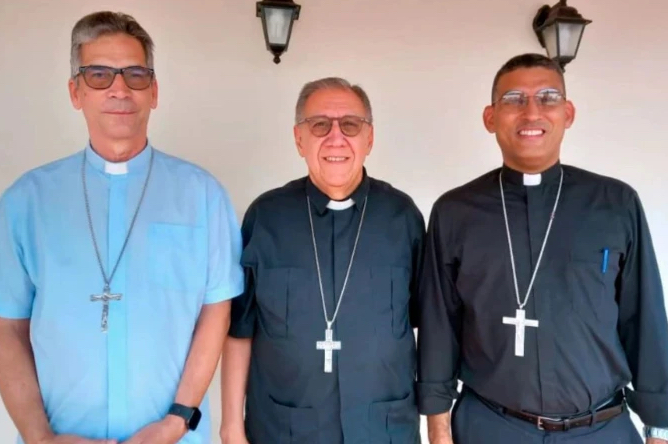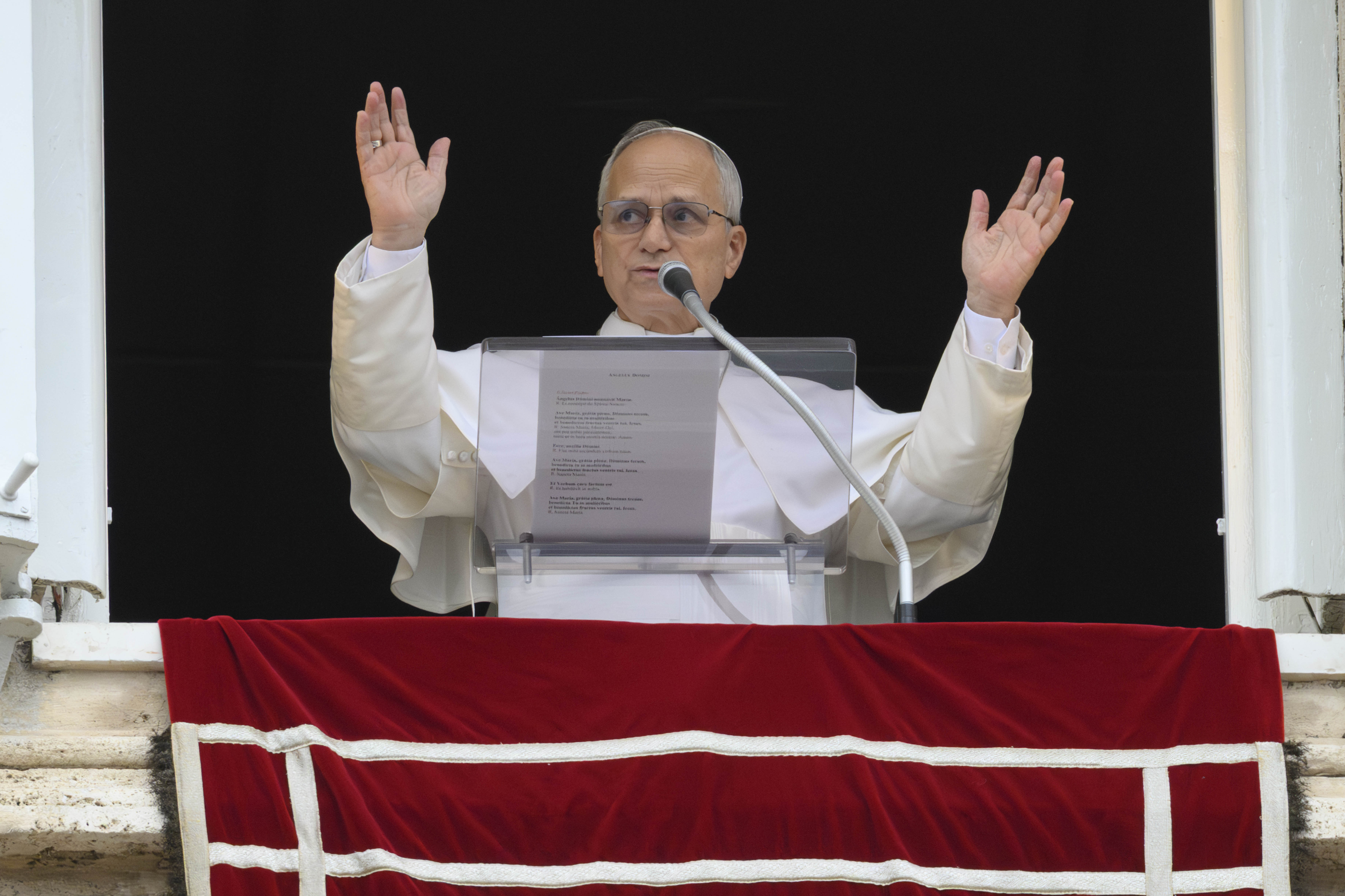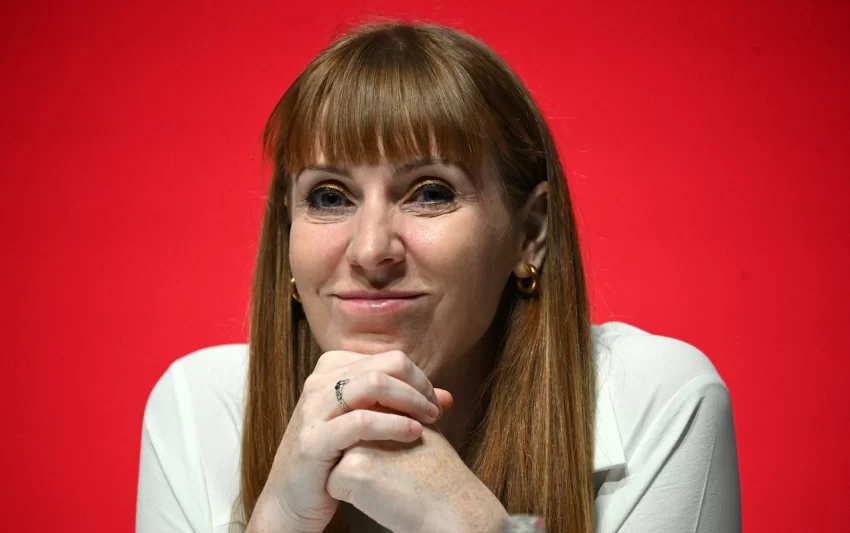Don’t punish athletes for warmongering politicians, UEFA boss says
MONACO — European football chief Aleksander Čeferin said civilian suffering caused by Israel’s war in Gaza has deeply affected him, but he believes players and teams shouldn’t face ineffective competition bans over conflicts waged by national leaders.
The most powerful football boss in Europe denounced “reckless politicians” for fueling the “slaughter” of kids around the world and defended a “Stop Killing Children” banner recently displayed by his organization, UEFA, which triggered blowback from hardline pro-Israel and Palestinian advocacy groups alike.
Scrutiny of Israeli teams in European football competitions has increased amid the spiraling death toll from Prime Minister Benjamin Netanyahu’s ongoing war with Hamas, and Čeferin addressed potential expulsions during a sprawling interview with POLITICO.
“Look, first of all, what’s happening with civilians there is personally hurting, killing me,” Čeferin said about Gaza. “From the other point of view, I’m not a supporter of banning the athletes. Because what can an athlete do to their government to stop the war? It’s very, very hard. Now, the ban for Russian teams is, I think, three and a half years. Did the [Ukraine] war stop? It didn’t.” UEFA banned Russian clubs and national teams from its competitions in February 2022, four days after Moscow’s full-scale invasion began.
Čeferin — speaking at his temporary office in Monaco’s luxurious Le Méridien Beach Plaza hotel — then flayed leaders across the world, in some of the most trenchant remarks by any sports chief about the geopolitical unrest convulsing the planet.
“I cannot understand how a politician who can do a lot to stop the slaughter, anywhere, can go to sleep seeing all the children and all the civilians dead,” he said. “I don’t understand it. You know, the idea football should solve these problems? No way.”
The banner heard around the world
UEFA, European football’s influential governing body, stumbled into a firestorm of criticism during mid-August’s Super Cup match over a banner designed to highlight atrocities against civilians and children.
With the Middle East at boiling point, some supporters of Israel decried the “Stop Killing Children, Stop Killing Civilians” banner as pandering to Hamas propaganda; while pro-Palestinian groups said it didn’t go far enough in condemning Israel for its assault in Gaza.
Čeferin is adamant that UEFA was making a global humanitarian point, not a political one, with its slogan — and he tore into its critics.
“We have a UEFA foundation for children. We are not living on another planet. We are living in this world. And when you see children dying all around the world because of — it’s a diplomatic statement, if I say — reckless politicians. Whoever thinks that ‘Stop Killing Children, Stop Killing Civilians’ is a political message is an idiot, for me,” Čeferin said.
“It’s terrible that children are dying because of political interest, starving to death. Mohammed, who was giving the medals [at last month’s UEFA Super Cup] with me, lost his mother and his father [in Gaza]. And he was heavily injured. I’ve never seen a child hugging me so much as he did. He needs love. He doesn’t need another bomb on his head because of a geopolitical interest,” he added.
The backlash UEFA received, in Čeferin’s view, is one example of a world now blighted by populism, extremism at both ends of the political spectrum, and a growing inability to candidly discuss sensitive issues.

“So, you know, in life probably many times it’s the best not to do anything. But if such a big thing is going on, such a terrible thing that doesn’t allow me to sleep — not me, all my colleagues — nobody in this organization said we shouldn’t do it. No one. Then you have to do what is the right thing to do,” he said.
The episode laid bare the delicate task of crafting messages that resonate across a fractured political and cultural landscape.
“Some extreme populist minorities from both sides were not happy,” Čeferin said, but added: “We’ve got tons of positive messaging. I was touched when I got some letters from people who said, ‘you are the only organization who did something.’ And from both sides. And I have full, full support from the Israeli Football Federation, from the president, who is a good friend of mine.
“So let’s hope that the world calms down, but it doesn’t look that way,” he warned. “For me, it’s not been as dangerous since the ’30s of the last century.”
Stop the war
While there appears to be no ban incoming for Israeli teams, Russian clubs face a long wait to return to European football, as President Vladimir Putin’s war on Ukraine grinds forward with scant sign of a ceasefire.
“I mean, for us, it’s pretty clear that the war has to stop. The war has to stop,” Čeferin said last week. “We wanted to bring youngsters, under-17 boys and girls back [in 2023], and we even got the support from our executive committee.” But he said the plan was torpedoed because of “political hysteria.”

Čeferin, visibly impassioned when talking about the suffering of children worldwide, said he regrets that UEFA was forced to back down on that proposal.
“I still think that the children should be treated differently because, you know, they are raised in fear and hatred,” he said. “If they would come to play in Slovenia, I’m sure Slovenian children would hug them and speak to them. And English, and Scottish, and Austrian, and whoever … They would understand that we are not their enemies, that nations are not enemies between each other. But politicians, they don’t care about that.
“The child doesn’t even vote. They don’t support any politicians. And they are not allowed to meet children from the other parts of the world. So that’s, I think, quite sad,” he added.
UEFA’s president, who has been in his post since 2016, dismissed concerns about holding next May’s flagship Champions League final in Budapest, where Hungarian Prime Minister Viktor Orbán has maintained close ties with Putin and repeatedly antagonized Ukraine.
“For me, if we would have any problems with that, we would become a political organization. Hungary is our member. I respect Hungarians. I respect the Hungarian government exactly the same as the German government or any other government in Europe,” Čeferin said.
“And if you think that we will award competitions only to the ones who are in line with mainstream politics, then you’re wrong,” he added.
Čeferin’s next move
During a whistle-stop tour of this summer’s football policy flashpoints, Čeferin claimed that relations with world football governing body FIFA, led by Gianni Infantino, were more positive than often portrayed.
UEFA’s leader also explained a brief blowup with FIFA in May, when Infantino’s late arrival to a key meeting in Paraguay — because he’d been on U.S. President Donald Trump’s Gulf tour — sparked a furious reaction from European football heavyweights.
“Nothing changed, but maybe the first press release was a bit overemotional,” Čeferin said, after an initial UEFA missive hammered Infantino for pursuing “private political interests” ahead of football governance.
“To be honest, there are things that we disagree [on]. But 90 percent, we do agree. I think you should in life, and in professional and private life, choose your battles. You should fight when it’s a reason, really reason to fight, but every fight is tiring, so I have to say that the relation with FIFA is much better than before,” Čeferin added.
The UEFA president also objected to the idea of competitive, domestic European league matches being played in foreign countries — which the European Commission also recently came out against — while adding that there were no plans to host UEFA tournament matches outside Europe.
“For now, we haven’t discussed about any staging of any matches out of Europe. I think it’s as simple as that, it’s not on the agenda,” he said.
Čeferin didn’t close the door on running again to lead UEFA for another term in 2027, or even seeking political office back in his native Slovenia after he’s finished with football.
“No,” he said, in response to a question about bidding for a top job in Slovenia, where he worked as a lawyer before entering football officialdom. “But as my father loves to remind me, every no is just a way to tempt the future.”
One job Čeferin tersely ruled out: FIFA president.
Click here to read POLITICO’s full interview with UEFA President Aleksander Čeferin.




















:quality(85):upscale()/2023/09/18/918/n/1922398/a1136b676508baddc752f5.20098216_.jpg)
:quality(85):upscale()/2025/10/09/670/n/1922283/00b944c868e7cf4f7b79b3.95741067_.jpg)
:quality(85):upscale()/2025/10/15/765/n/1922398/29c37a6e68efd84bb02f35.49541188_.jpg)
:quality(85):upscale()/2025/09/09/891/n/1922283/7222624268c08ccba1c9a3.01436482_.png)
















